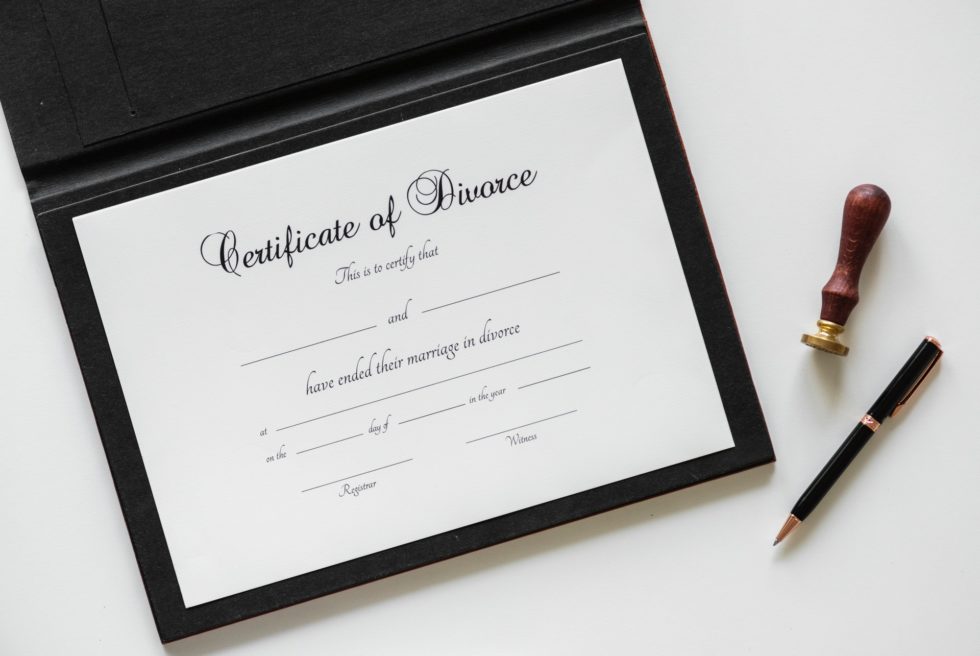A University of Chicago study found that 25 percent of all marriages are affected by the pain adultery sometime during the life of the marriage. If devastated spouses decide to divorce the cheater, can they get more of the marital assets? Maybe.
While all’s fair in love and war, all is not necessarily fair in divorce court. “In California, adultery doesn’t make a bit of difference in division of property. It’s an interpersonal issue. Not a legal factor. So, judges don’t get into it. Often, people are very disappointed to hear that,” said Nordin F. Blacker, president of the Northern California Chapter of the American Academy of Matrimonial Lawyers. However, all is not lost.
“You can put yourself in a better position and bargain for more favorable terms, if you know how to go about it,” said Ruth Houston, author of “Is He Cheating on You? – 829 Telltale Signs“. Getting that greater share requires understanding the complex laws governing divorce, property settlement, and spousal support. It also requires knowing how to leverage alienation of affection, intentional infliction of emotional distress and criminal conversation laws. Here are seven steps that can put you on the path to negotiating for a better settlement:
1. Do your homework.
“Don’t wait until the cheater cleans out the bank account and leaves or you’ll lose your chance to gain the upper hand. If you suspect that something might be going on, be smart and quietly go about getting some of the details,” Houston said. According to a recent survey of the American Academy of Matrimonial Lawyers (AAML), a resounding 88 percent of the nation’s top divorce attorneys say they have seen an increase in the number of cases using electronic data as evidence during the past five years. “Technology is having a big impact on the way that divorces are now conducted,” said James Hennenhoefer, president of the AAML. “Many people still don‘t realize how much evidence can be gleaned from personal electronics ranging from computers to cell phones and GPS devices. In the Internet age, there is often a very clear trail that has been left behind and can be easily traced.”
E-mail takes the lead as the most commonly used form of technological evidence, with 82 percent citing it as the main source. Text/instant messaging and Internet browsing history tie for second with seven percent each, while one percent of the respondents cite data taken from GPS systems. Interestingly, the survey also reveals that wives are more likely to make use of electronic evidence than husbands. Once you have evidence that there is an affair, confront your spouse. “Letting your spouse know you’re aware of their affair may make the difference between being dumped and negotiating for more favorable terms,” said Houston.
While it may be uncomfortable to think of using threat of disclosure as a bargaining chip, for a spouse who is facing the loss of their marriage and financial security as well as the public humiliation of having others know their spouse cheated on them, working a deal where the reasons for the divorce are kept quiet in exchange for a larger settlement may make sense for both parties. For example, the U. S. military considers adultery unacceptable conduct. If a U. S. soldier commits adultery, he/she can be charged with Article 134 of the Uniform Code of Military Justice. If found guilty, the soldier will be punished by the military and the adultery will reflect adversely on their service record. Agreeing not to disclose the adultery in exchange for having custody of your children or a greater share of the marital assets can help both of you.
“If you do decide to pursue this avenue, you will have to keep quiet as you are learning about the affair, otherwise you will lose your bargaining power,” said Houston. Also, if possible, keep the discussions about adultery out of the courtroom because proving adultery isn’t easy. “Even if you have a video of your husband and his secretary going into a hotel room, that doesn’t mean you’ve proven anything,” said Thomas Wolfrum, a certified Family Law Specialist who is a Fellow of the American Academy of Matrimonial Lawyers.
2. Determine the grounds for your divorce. Find out if you’re in a fault/no-fault state.
The facts that you have to prove to get divorced are called grounds. There are fault grounds such as adultery, physical cruelty, mental cruelty, habitual drunkenness, and desertion; and, there are no-fault grounds such as “irreconcilable differences” or living separate and apart without cohabitation for a certain period.
Oklahoma introduced no-fault divorce in 1953. But, the idea that you could get a divorce without blaming someone for the failure of the marriage really didn’t get much traction until 1969, when California passed the Family Law Act which abolished the old common law action for divorce and replaced it with dissolution of marriage on the grounds of “irreconcilable differences.” By 1985, every state had adopted no-fault divorce. Some no-fault states do allow you to claim fault when you file for divorce. If you live in one of those states, while there are many factors that go into the court’s decision, judges are allowed to penalize the “at-fault” party“ when it comes to deciding who pays attorney’s fees or who will get what property.
Whether you file a fault or no-fault divorce, the grounds on which you are granted a divorce don’t necessarily correspond to the financial end of the divorce. For example, some no-fault states do consider fault an issue when it comes to determining spousal support and sometimes cheater’s remorse can help sweeten the pot. “Sometimes a cheating spouse will put more on the table because of guilt, but guilt normally has a short shelf life,” said Blacker.
3. Find out if you live in a community property state or an equitable distribution state.
Even if you live in a state where you can’t divorce on the basis of fault, you still may be able to get more of the marital estate. That’s because there’s a difference between the grounds for the divorce and how the property of the marriage is divided. That difference is affected by whether you live in a community property state or an equitable distribution state.
In community property states (Arizona, California, Idaho, Louisiana, Nevada, New Mexico, Texas, Washington, and Wisconsin), fault is not considered in division of property. However, fault does get in the back door, according to Wolfrum. “Domestic violence is a factor that affects child and spousal support. It’s a kind of fault that could be used to increase the amount or length of time of spousal support,” said Wolfrum. All the rest of the states are equitable distribution states. “In these states, the judge has discretion to decide how the property should be divided and the court can consider a number of factors such as length of marriage, the age and health of the parties, the earnings of parties, the abilities of the parties to support themselves, their education and who paid for it, the property that both sides own and the locality of the property, and the future opportunity to acquire assets,” said Wolfrum.
Whether the marital property was inherited or earned during the marriage also affects how it is divided. “However, if you get a 60/40 split, that may be offset by getting less maintenance or getting maintenance for a shorter period of time,” said Wolfrum.
4. Ask for spousal support to get back on your feet.
If you’re a basketcase after discovering the affair, you may want to ask to have that factored into your earning ability. “You can say, ‘I’ve been married for 20 years and I thought was he was faithful. Then, I found out he was having not just one affair but multiple affairs. I need at least a year of therapy and I want child support and alimony computed on zero income for that year because I’m devastated and emotionally unable to work,’” said Wolfrum.
While you may have to show you’ve been diligent in working through what’s happened, if at the end of the year, you feel you need more time, then, depending on how the order was written, you may be able to petition to have the time extended.
5. Consider going after the home wrecker.
Yes, it’s utterly vindictive to go after your spouse’s paramour. Yet, why should the little home wrecker get off Scot-free while you’re left to pick up the crumbs? Stealing a spouse is a form of personal injury and there are three ways to be compensated for that. Depending on which state they live in, injured spouses may be able to file Alienation of Affection, Criminal Conversations or Intentional Affliction of Emotional Distress suits against the person their spouse cheated with. Even if you don’t go after the paramour, raising the possibility may get you a better deal if your soon-to-be ex spouse wants to protect his/her lover.
Alienation of Affections: “Alienation of Affection” is an umbrella term that covers the “wrongful or injurious act” of interfering with an affectionate relationship in a way that causes one person to lose affection for the other. Since 1935, the Alienation of Affections tort has been abolished by most states as an archaic and outdated form of revenge. However, if you live in one of the states where they’re still on the books (Hawaii, Illinois, Mississippi, New Hampshire, New Mexico, North Carolina, South Dakota, and Utah), and your spouse has cheated on you, you may be able to receive some level of financial compensation to make up for the pain of betrayal. More than 200 Alienation of Affection cases are filed annually in North Carolina, which has a public policy that protects marriages from third party interference.
If you decide to pursue an Alienation of Affection suit, you won’t be bringing it against your cheating spouse. You’ll be filing it against the weasel they erred with. And, you don’t have to prove that they had sex with your spouse. That’s because the basis of the suit is not adultery but the fact that the weasel caused your spouse to lose that loving feeling for you. According to Haas McNeill & Associates, a law firm in North Carolina, “The exclusive right of sexual intercourse is not the right protected in this type of case. It’s the actual affection between spouses that’s the right protected.”
According to the Legal Match Law Library, “To succeed on an alienation of affection claim, the “injured” spouse must show three things: the marriage entailed love between the spouses in some degree; the spousal love was alienated and destroyed; and the third party’s malicious conduct contributed to or caused the loss of affection. It’s often not necessary to show that the third party set out to destroy the marital relationship, but only that he or she intentionally engaged in acts that likely would impact the marriage.”
How much can you get? According to Gailor, Wallis & Hunt, a law firm in Raleigh, North Carolina, “The potential size of a favorable verdict may vary depending on multiple factors including length of the marriage; the egregiousness of the defendant’s conduct and the length of time over which it has occurred; the conduct of the plaintiff during the marriage; and actual damages such as medical or psychological treatment costs and loss of income in addition to humiliation and emotional harm among others. Not every case of alienation of affections or adultery will merit bringing a claim.”
However, for those who win a claim, the reward can be substantial. Haas McNeill & Associates reports that North Carolina juries have handed out big awards in some of these cases. In 2001, a Greensboro jury awarded $2 million to the Plaintiff. Another jury awarded $1.2 million in 1997 in a Forsyth County case. Other awards include $1 million to an Alamance County woman, $243,000 to a Wake County man, and $40,000 to a Durham County man whose wife allegedly ran off with another man. You can sue for both punitive and compensatory damages. In May 2001, a cuckolded husband was awarded $100,000 — $50,000 for compensatory damages and $50,000 for punitive damages.
Criminal Conversations: Whereas Alienation of Affection suits are about how your spouse feels about you after getting involved with someone else, Criminal Conversation suits are just about whether sexual intercourse happened between the defendant and your spouse. You don’t have to prove that the intercourse changed the way your spouse feels about you — you just have to prove that sex between the defendant and your spouse occurred while you were married.
While it may be tough to prove that sex took place, if you can prove it, there are no obvious defenses to a claim of criminal conversation. According to Lee S. Rosen, a Board Certified Family Specialist and founder of Rosen Divorce, the largest divorce firm in the Southeastern United States, “It is not a defense that: the defendant did not know the other person was married; that the person consented to the sex; that the plaintiff was separated from his or her spouse, that the other person actually seduced the defendant; that the marriage was an unhappy one; that the defendant’s sex with the spouse did not otherwise impact on the plaintiff’s marriage; that plaintiff had mistreated the spouse; or that the plaintiff had also been unfaithful. It might be a defense that the plaintiff “consented” to the illicit intercourse; but the defendant would have to show that this approval or encouragement had pre-dated the extramarital conduct.”
There is a three-year statute of limitations for Alienation of Affections claims. The clock begins ticking on the date of your separation. The court generally views behavior that happened after the separation as irrelevant. So, if your spouse starts dating before the divorce is final, that generally doesn’t count as Alienation of Affection. However, if your spouse continues a relationship that broke up your marriage, that shows that the cheater chose the paramour over you and can be evidence the affair really did destroy the love between you.
Substituting Alienation of Affections With IIED: Since most states have abolished Alienation of Affections laws, wronged spouses have tried to recover damages under the cause of action known as Intentional Infliction of Emotional Distress (IIED). Courts have generally recognized IIED as separate and distinct from Alienation of Affections, so that IIED may be available against a third party for conduct that breaks up a marital relationship, even in states that have abolished Alienation of Affections. To bring a successful IIED claim, the party suing must prove four elements: conduct that is intentional or reckless; conduct that is extreme and outrageous; the wrongful conduct caused the emotional distress; and the emotional distress must be severe.
6. Find out who the other party is.
Before you can go after the person your spouse cheated with, you have to know whom they are. Ruth Houston offers the following three tips to unearthing their identity.
Reverse phone number search: “If you find unfamiliar numbers on your caller ID, cell phone bill, programmed into your spouse’s cell phone, or scribbled on scraps of paper or the back of business cards, you can do a reverse phone number search to find out whose number it is,” said Houston. Your search is 100 percent confidential. For an additional fee, this service also lets you run background checks on any names you come across.
Reverse e-mail address search: “If your spouse is sending or receiving e-mails from someone you don’t know and you want to find out who a certain e-mail address belongs to, you can run a reverse e-mail search with the largest e-mail search database on the internet,” said Houston. This is the same service used by law enforcement, government officials, lawyers, private investigators and many others.
Background check: “If you have the name of the person(s) you think your spouse is involved with, or if you find a suspicious name among your spouse’s personal effects, you can quickly and easily run a background check to find out more information about this person including: their address history; their work history; whether they’re married, single, or divorced; whether they’ve ever committed a crime and more,” said Houston. All background searches are confidential.
7. Hire a good lawyer.
Getting a greater share of the marital assets requires a skilled lawyer who will advocate for your best interests. “The yellow pages are absolutely worst place to look for an attorney. I recommend you start with attorney from the American Academy of Matrimonial Lawyers because they noted for excellence in this area and many have passed a second bar exam to become a certified family law specialist,” said Wolfrum, who also recommends you get a copy of IRS Publication 504: Instruction Booklet for Divorce.
Finding out your spouse has cheated on you unravels your world. It can be particularly galling if the person they cheated with benefits financially. Ashley Dupre, the call girl Spitzer allegedly hired, stands to make big money. The Week Magazine reports two songs Dupre posted on her MySpace page are being played on New York radio and have been downloaded several hundred thousand times for 98 cent a piece. Hustler Magazine has offered Dupre $1 million to pose nude and a Nevada brothel has offered her a $250,000 signing bonus.
Rather than feeling screwed twice, Houston encourages betrayed spouses to take action to protect their right to the marital assets. “Act decisively and you’ll feel empowered, rather than victimized,” Houston said.






